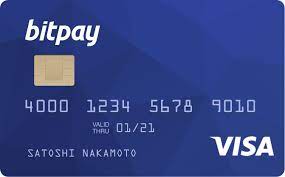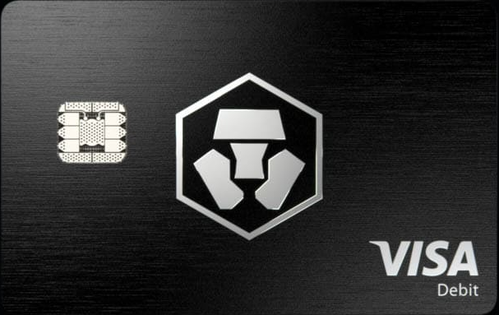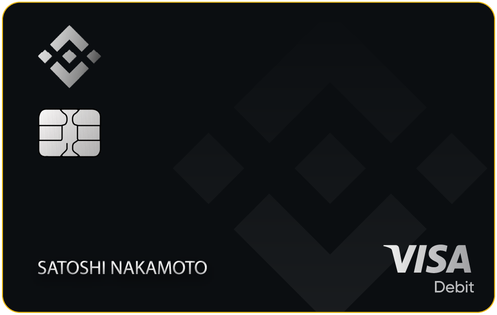































Cryptocurrencies continue to grow into mainstream adoption, and one of the ways this manifests is via crypto debit cards. Like regular debit cards, these allow you to spend money from an account by swiping your card (or entering the numbers from it). The big difference is that instead of this card linking to your bank account, it connects to one of your crypto wallets.
With a crypto debit card, you can spend your cryptocurrencies on everyday goods and services. Yet, with crypto regulation being something of a grey area, there are some obstacles to keep in mind. For instance, selling crypto, even to use as a currency with a debit card, may trigger a taxable event. Residents of the US need to be aware that most conversions and sales of cryptocurrencies are currently considered taxable events.
Despite their relative newness, there are already numerous crypto debit cards to consider. These cards vary in terms, perks, fees, and other features, so we did all the research for you. Here are our picks for the five best crypto debit cards:
 card highlights intro bonusN/AAPRN/Arecommended creditNo Credit Historyreward rates
card highlights intro bonusN/AAPRN/Arecommended creditNo Credit Historyreward rates Coinbase is one of the more prominent names in crypto, with it being one of the largest exchanges and the first to claim a spot on the New York stock exchange. The Coinbase Visa benefits from the company's experience creating and running a high-level financial exchange in a relatively new and competitive industry.
The company's background and experience have also lent a great deal of security to its card. Not only is the card protected by the company's transaction security, but users can freeze their physical card from anywhere using the companion app. Coinbase also offers up to 4% cashback on purchases with this Visa.
One of the challenges with crypto debit cards is the stark contrast between how many cryptocurrencies exist and how many are compatible with these cards. While not top in the industry for the number of cryptos that work with their card, Coinbase offers a broader selection than many competitors. Cardholders can utilize any supported crypto on Coinbase and US dollars on purchases with the card, including withdrawals at ATMs.
Coinbase has stated that they've removed transaction fees, making this a potentially fee-less process. There is a 2.49% conversion fee listed in the user agreement, specified for transactions from cryptos other than USD Coin. Cardholders may wish to maintain a portion of their assets in USDC for the purpose of fee-less transactions.
The wide utilitarian usage of the Coinbase Visa, combined with the removal of fees, the large number of compatible cryptocurrencies, high-level security, and strong rewards program earned this card its spot asbest overallon our list.
Pros
Cons

 card highlights intro bonusN/AAPRN/Arecommended creditNo Creditreward ratesN/Aannual feeN/Aintro purchase APRN/A
card highlights intro bonusN/AAPRN/Arecommended creditNo Creditreward ratesN/Aannual feeN/Aintro purchase APRN/AThe BitPay Card offers an excellent entry into the crypto debit card lifestyle. While this card doesn't have a rewards program, it excels in most other aspects of these crypto cards. There are thirteen cryptocurrencies supported and no conversion fees for making purchases or ATM withdrawals (ATMs do include a separate fee). The BitPay companion app makes it easy to freeze your card if you've lost it or pay without it if you left it at home. While offering such apps is becoming standard, not all allow for as much functionality is the BitPay app.
BitPay is one of the forerunners in this industry. It was founded in 2011, well before cryptocurrency had expanded into the vast sphere of coins it is today. The company's history and experience have lent towards making a crypto debit card with minimal costs, impressive ease of access and utility, and strong security. While rewards would be a nice caveat, the lack thereof doesn't keep the BitPay Mastercard from beingrunner up for best overallon our review list.
Pros
Cons

 card highlights intro bonusN/AAPRN/Arecommended creditN/Areward rates
card highlights intro bonusN/AAPRN/Arecommended creditN/Areward rates The Crypto.com Visa Card offers more benefits the larger the sum you have staked in CRO. CRO is the native crypto of Crypto.com. Transactions are performed in CRO, and rewards are paid out in CRO. Not only does this card offer high rewards to serious investors, but there are little to no fees for many transactions. The company offers different tiers of cards that each require an additional amount of staked CRO in USD value. The tiers differ in some aspects beyond rewards, including a transaction threshold for each level. Transactions under your card's threshold don't incur a transaction fee, while those that go over have a 0.5% fee.
Thanks to its utility, low fees, and robust investment-based rewards system, the Crypto.com card earned a spot on this list asbest for high-end investors. While the Crypto.com Visa has a steeper cost to play, it offers nearly unparalleled benefits for those who are willing and able to invest into the top tiers of card. No matter your tier, this card is usable at merchants and ATMs both, making it a viable everyday debit card.
Pros
Cons

The BlockFi Visa Rewards Signature Card offers a point-based reward system as the backbone of its cashback program. Users earn points with every purchase, which are converted at the end of the month into a crypto asset of the cardholder's choice (selected from available coins). Depending on that month's market movements, this approach can be a boon or a hindrance for cardholders. For crypto investors who enjoy the volatile price swings of the crypto market, this card can offer another angle to appreciate and potentially benefit from those fluctuations.
Every crypto debit card has its own nuances when it comes to cashback and how cardholders can receive these rewards. BlockFi breaks with some of its competitors by allowing cardholders to select which crypto they would like to use when receiving their cashback rewards. Combined with the card's unlimited cashback, the option to choose earns it a spot on our list as thebest crypto debit card for unrestricted cashback rewards.
Pros
Cons
 card highlights intro bonusN/AAPRN/Arecommended creditNo Creditreward ratesN/Aannual feeN/Aintro purchase APRN/A
card highlights intro bonusN/AAPRN/Arecommended creditNo Creditreward ratesN/Aannual feeN/Aintro purchase APRN/ABinance is one of the larger cryptocurrency exchanges, and it offers a Visa debit card. Perhaps the biggest allure of the Binance Visa is that cardholders earn up to 8% in cashback on their purchases. However, this reward is only available in the exchange's native crypto, BNB. This card does have transaction and withdrawal fees of up to 0.9%, but these are relatively low for the industry.
Due to filing and regulatory issues, residents of the US and the UK are no longer eligible for the Binance Visa card. With crypto regulations and norms changing rapidly, this may remain a barrier long-term, or it may change once again. Still, despite this restriction, the Binance Visa offers some of the best cashback rewards found in crypto debit cards. The potential for 8% cashback, requiring heavy investment, earned the Binance Visabest for cashbackon our list.
Pros
Cons

The Coinbase Visa card won our top spot as the best crypto debit card, although the competition was fierce, and each of these cards has plenty to offer.
Card | Key features |
Coinbase Visa |
|
BitPay Debit Card |
|
Crypto.com Visa Card |
|
BlockFi Visa Rewards Signature Card |
|
Binance Visa |
|
Depending on what you want to get from your crypto debit card, different cards might be best for you. There is some overlap in best use cases between some of these cards, and in those cases, the best one for you may come down to more nuanced differences. For instance, both Binance and Crypto.com offer up to 8% cashback on their cards, but they have different requirements for reaching this reward level.
Crypto debit cards use a clever mechanism that allows cardholders to use their crypto like a currency, even when it isn't technically counted as one. Your crypto debit card will be linked to a crypto wallet. Depending on the card in question, this wallet may be connected to your crypto exchange assets, one or more of your personal crypto wallets, or could be pre-loaded directly with funds from a traditional debit card.
These debit cards work by selling some of those crypto assets for you and converting them into a legal currency at the point of transaction or ATM withdrawal. In short, the card either sells some of your cryptos and converts them into cash when you use it, or it requires you to keep it pre-loaded with a specific cryptocurrency.
To reach these final five, a variety of crypto debit cards were considered side by side. Cards were compared based on fees (annual, signup, and conversion), the success of the business, available rewards (including options for how to receive said rewards), the number of cryptocurrencies supported, the availability of the card, the number of places where the card can be used, and any extra features. In cases where cards had high levels of competitiveness for the same features, nuanced specifics were identified to differentiate them -- for instance, the differences in use cases between the Binance and the Crypto.com card.
Although mainstream adoption of cryptocurrencies is still on the horizon, it has grown significantly closer. There are now numerous crypto debit and credit cards to consider, whereas only a few years ago, these options barely existed. While the five reviewed above are our top picks, there are many others to consider. Three more crypto debit cards that may interest readers you are the Gemini Card, the Wirex Card, and the Nuri Card.
 Etiquetas calientes:
Nuestro proceso
finanzas
Tarjetas de crédito
Etiquetas calientes:
Nuestro proceso
finanzas
Tarjetas de crédito